A few weeks ago I sought the web page for the NY Public Library, checking to see about opening hours for this magnificent building. What greeted me was a display of various books that had been banned or censored over the years, most of which were well known to me as an avid reader. What I didn’t know was that the last week in September is Banned Books Week, “Celebrating the Freedom to Read.” I wondered whether the freedom to read coexists with the freedom to write?
The Puritans, of course, were masters of telling folks what they could and could not read and write. The first known banned book in America was Thomas Morton’s New English Canaan published in 1637. It encouraged readers to love Native Americans and satirized the Puritans. In the eighteenth century, while America still strained under the yoke of Britain, Defoe’s Moll Flanders and Roxana: the Fortunate Mistress, as well as the perhaps more infamous 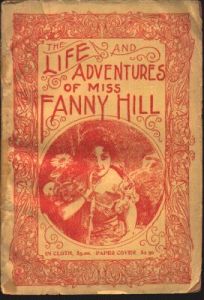 Fanny Hill by John Cleland, met the censor’s ax. Fanny Hill bears the dubious distinction of being the last book to be banned throughout the USA. While the dime novels of the nineteenth century may have caused an outrage or two, increased literacy, and hence literary output, seems to have led to an accepted form of censorship. Expurgation and the accompanying bowdlerization of numerous books was acknowledged as protecting public virtue and decency. Even Shakespeare did not elude cuts. Perhaps the most famous of nineteenth century banned books is The Adventures of Huckleberry Finn. Still coming in at number fourteen in 2009, Huck Finn has been repeatedly challenged from all sides of the spectrum.
Fanny Hill by John Cleland, met the censor’s ax. Fanny Hill bears the dubious distinction of being the last book to be banned throughout the USA. While the dime novels of the nineteenth century may have caused an outrage or two, increased literacy, and hence literary output, seems to have led to an accepted form of censorship. Expurgation and the accompanying bowdlerization of numerous books was acknowledged as protecting public virtue and decency. Even Shakespeare did not elude cuts. Perhaps the most famous of nineteenth century banned books is The Adventures of Huckleberry Finn. Still coming in at number fourteen in 2009, Huck Finn has been repeatedly challenged from all sides of the spectrum. 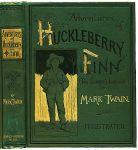 Originally banned as immoral and sacrilegious, not to mention having a lack of respect for adult authority, as time has passed, the baton was dispatched to others, so to speak. In the 1950s, the NAACP began challenging the book as racist because of its portrayal of the slave Jim and the repeated use of racially pejorative terms, namely the N—– word—a conflict that has repeatedly harassed To Kill A Mockingbird as well. During his lifetime, Twain aka Samuel Clemens, simply saw the controversies surrounding his book as excellent fodder for promotion. He knew publicity when he saw it. Harriet Beecher Stowe’s Uncle Tom’s Cabin is occasionally credited with having started the Civil War but, although it may have been difficult to purchase in southern states, it was never officially banned. I’m sure Congress might have liked to ban Helen Hunt Jackson’s A Century of Dishonor as well as Ramona, both of which deal with the treatment of Native Americans, especially by the federal government, but that didn’t happen either.
Originally banned as immoral and sacrilegious, not to mention having a lack of respect for adult authority, as time has passed, the baton was dispatched to others, so to speak. In the 1950s, the NAACP began challenging the book as racist because of its portrayal of the slave Jim and the repeated use of racially pejorative terms, namely the N—– word—a conflict that has repeatedly harassed To Kill A Mockingbird as well. During his lifetime, Twain aka Samuel Clemens, simply saw the controversies surrounding his book as excellent fodder for promotion. He knew publicity when he saw it. Harriet Beecher Stowe’s Uncle Tom’s Cabin is occasionally credited with having started the Civil War but, although it may have been difficult to purchase in southern states, it was never officially banned. I’m sure Congress might have liked to ban Helen Hunt Jackson’s A Century of Dishonor as well as Ramona, both of which deal with the treatment of Native Americans, especially by the federal government, but that didn’t happen either.
However, in the twentieth century, guardians of public morality became rife. Almost everything Theodore Dreiser wrote was either challenged or banned: Sister Carrie, Genius, and An American Tragedy were all held in check by the New York Society for the Suppression of Vice, The Western Society for the Prevention of Vice, and the Boston District Attorney. But it was James Joyce’s
Ulysses, considered by many one of the great masterpieces of modern literature, that really brought up a host of questions as to what is acceptable as freedom of speech and what is not: what has literary merit and what is pornographic? It is a question that bears heavily on free speech, under the jurisdiction of individual states, the federal government only being able to intervene when items are passed between states. The federal government passed an obscenity law in 1873 when the Supreme Court decided that pornography/obscenity was not protected by the First Amendment, yet this still leaves the question open as to what is obscene. The toing and froing over Ulysses took some fifteen years internationally to finally be settled in a NY court of law when it was decided that Joyce’s purpose, despite several sexually explicit scenes, was not pornographic. I can only wonder if E.L. James can truly stand up to such a test. Oh, but I forget: today we have ‘erotic’ literature…
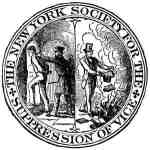 The other famous court case of the twentieth century was, of course, Lady Chatterly’s Lover. I can well remember the girlish giggles accompanying “discussion” of who had a copy of the book and where we might gather to read passages away from the prying eyes of teachers and parents. Chatterly and Tropic of Cancer, of course. Chatterly had been banned for both its coarse language and explicit scenes of a sexual nature, but in 1959 the ban of this, along with Fanny Hill and Tropic of Cancer, was overturned when the court found it had literary merit. As an aside, let me say that the case was then taken up in the UK the following year, where the judge asked the famous question, “would you want your wife and servants to read this book?” After three hours of deliberation in Her Majesty’s Court, the answer was, “yes.”
The other famous court case of the twentieth century was, of course, Lady Chatterly’s Lover. I can well remember the girlish giggles accompanying “discussion” of who had a copy of the book and where we might gather to read passages away from the prying eyes of teachers and parents. Chatterly and Tropic of Cancer, of course. Chatterly had been banned for both its coarse language and explicit scenes of a sexual nature, but in 1959 the ban of this, along with Fanny Hill and Tropic of Cancer, was overturned when the court found it had literary merit. As an aside, let me say that the case was then taken up in the UK the following year, where the judge asked the famous question, “would you want your wife and servants to read this book?” After three hours of deliberation in Her Majesty’s Court, the answer was, “yes.”
Nowadays, the predominant challenge to books is that they are unsuitable for their age group, having too much violence, too much sex for their age group, containing controversial issues, offensive language, promoting homosexuality, containing drugs/alcohol/smoking/gambling, being socially offensive, containing nudity, and just about any other ‘vice’ you can think of. Heading the list this year was The Absolutely True Diary of a Part-Time Indian, by Sherman Alexie, which work contains “cultural insensitivity” and “depictions of bullying.” The 2009 list, which is the last year for which I can find a full top 100, contains some titles with which most of us are familiar: the Harry Potter series, Of Mice and Men, I Know Why the Caged Bird Sings, The Color Purple, Catcher in the Rye, To Kill A Mockingbird, Snow Falling on Cedars, One Flew Over the Cuckoo’s Nest, The Kite Runner and, yes, Huck Finn is still there. Yet looking at the current list, most of the challenges are by parents who deem certain books as not appropriate for the age for which they were intended. And Tango Makes Three, a true story about same-sex penguins who were given an egg to raise after building a nest together and trying to raise a ‘rock’, has been challenged numerous times as promoting homosexuality. I wonder if the author ever thought twice about not writing this incredible story?
So I go back to my original question: is freedom of speech, and the freedom to read, the same as the freedom to write? With laws defining “hate crimes” as well as obscenity/pornography, are authors free to write as they wish? Are we bound by decency? If we write historical novels, do we think twice about using the N—– word or other racial slurs common to the time period we are depicting? Do we dampen down our scenes of an intimate nature or avoid them altogether simply because we are afraid of parental/friend/spouse/church condemnation? And while my magnificent NY Public Library most likely does not wish to purchase my western historical romances on grounds that they are irrelevant for their reading audiences, how does this decision not to purchase equate with banning books via not purchasing them for the libraries.
Let me know what you think.
All photos public domain
For further information regarding this topic, the following sites are helpful:
http://eduscapes.com/bookhistory/culturalicon/5.htm
http://libraryschool.libguidescms.com/content.php?pid=587594&sid=4857022
http://irishamerica.com/2008/10/the-battle-over-ulysses/
https://en.wikipedia.org/wiki/United_States_v._One_Book_Called_Ulysses
https://en.wikipedia.org/wiki/R_v_Penguin_Books_Ltd
http://www.ala.org/bbooks/top-100-bannedchallenged-books-2000-2009
https://en.wikipedia.org/wiki/United_States_obscenity_law

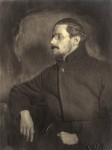


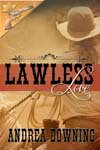

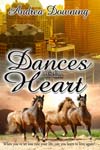


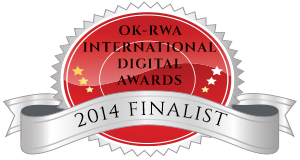







I’ve written some pretty sexually-explicit scenes in a couple of my books – well, necessary to the plot and true to the character development – but I for the last couple of books I have dialed it back because I would like to recommend my books to tween readers, and I do know that parents are the final judge of what is appropriate for their kids. I honestly have to say that Deep in the Heart and Adelsverein: The Gathering are not likely to be recommended for anyone much under the age of fifteen or so.
To date my best-selling book is still To Truckee’s Trail which is so g-rated that Disney could have made a movie of it, back in the 1960s. It is so g-rated that some Christian home-schooling parents use it as part of the curricula on teaching about the Oregon Trail.
My goal is to teach people about, and get people interested in American history by making a ripping good yarn in a historical setting. If I wanted to write erotica, I’d write erotica and pitch it to the 50 Shades of Grey fans, and go laughing all the way to my bank account.
LikeLike
It’s great, Celia, to be so true to yourself and know who you are with your writing. I think a lot of younger authors, starting out, worry about parents/friends/church reaction–or so I’ve heard. The other big question is the use of now-offensive words which were in common practice for the historic time period. That seems to be more of a hang-up for authors than sex scenes, albeit possibly less of concern for parents.
LikeLike
I’ve got a work-around for some then-commonly-used but-now offensive-words (I spell them as they would have sounded phonetically) which seems to take some of the sting out of using them.
Oh — and the book that I got inspired to do by your Harvey Girls post earlier this year? It’s done, and up at Amazon. Official release for Sunset and Steel Rails is on the 10th. I gave a nod to you in the dedication! 🙂
LikeLike
That’s a good idea about using the phonetics, Celia, though I doubt it helps with the N-word; does it? I’ll look forward to reading the new book at some stage and thank you for the nod–completely unnecessary. Good luck for the 10th.
LikeLike
It does help with the n-word, actually. And no problem for the nod – it gave me a whole and exciting plot, plus about another twenty inches of reference books in my personal research library!
LikeLike
Glad to be of service.
LikeLike
When I was writing my kid’s book, Wishing you Home, set during WWII, I fretted a bit over how to deal with the words Japs and Krauts. I remember I asked in an e-mail the opinion of other writers in a group I belonged to. One answer I saved. In part, this writer wrote: I believe political correctitude is injurious to one’s history. How can we truly change if we forget the pain and suffering caused by past behaviors? If this story is to be used for educating children, by all means use the “offensive” words in their context, with all the malice connected to them. Covering them over with euphemisms is just as harmful in the long run. And so I wrote dirty, stinky, lowdown Jap and/or Kraut, but I also wrote a preface which explained and gave background information concerning that time period.
P.S. so far, I’ve not written an explicit sex scene, but did someone say it’s very healthy for the bank account? Hummmmmm.
LikeLike
Eunie, I remembered that discussion on our listserv and almost mentioned it, but now I’m glad I didn’t. Thanks so much for sharing that discussion and the author’s response regarding those offensive words. What wisdom! I personally don’t feel we can reflect history precisely without the correct representation of language of the time. As for the explicit sex scenes helping the bank account, well, E.L. james and a few others may have benefitted, but I’m beginning to think there is so much of it about (and whatever happened to that literary merit I mention?), it’s of no use in bringing in big bucks anymore.
LikeLike
Only kidding about those explicit sex scenes! 🙂
LikeLike
Yup. Don’t think parents of your YA readers would appreciate them too much 😳
LikeLike
Fascinating post. Wow, what a lot of work you put into this. Enjoyed the discussion too. No, we do not and never did have total freedom of speech.
LikeLike
Thanks for the compliment, Beth–it seems one thing led to another as I researched the topic. At first I was only have a look at the various famous books that have been banned, but that got me thinking….
LikeLiked by 1 person
You really went to town with this post. I am quite impressed!
LikeLike
Thanks again!
LikeLiked by 1 person
Hi Andi,
Thanks for a thoughtful and thought provoking post. I’ve written of racial and cultural prejudice in each of my three books without using the derogatory name calling. I deal with aspects of the discriminatory or insensitive assaults in the dialogue and descriptive passages to explore the concepts. As for sex, I struggled with the question of how much to show and decided that it came as a natural expression of the characters emotional life for their initial experience with one another; after that, it is mostly alluded to rather than described in detail. So far, so good…I did have a religious (ie, very conservative) beta reader early on who found it too explicit in HUACHUCA WOMAN; made wonder what goes on in her bedroom…..har, har.
Arletta
LikeLike
Thanks for joining the discussion, Arletta. Obviously, if you felt you could get away with depicting racial prejudice without using the name calling and feel that it worked, than all for the good. To me, the name calling might be conspicuous by its absence (?), especially in, say, portraying slave-owners views of African Americans in the Civil War period. As for the sex, I’m with you on that. I can’t personally sit down and read erotic books but as for scenes of an intimate nature in general, I’ve written those and read them and do feel they’re part of the characters’ lives.
LikeLike
Andi, you are absolutely right that the setting, characters and culture will determine the use of language. In BY GRACE, set in Virginia City, Mt in 1899, I dealt with it in a couple of ways. When the minister she works for demands “Glenda” stop visiting the Changs in their home, he says “No white woman worth her salt enters such an abode.” Later, when the Chang’s place burns, the townsfolk do not rally around the couple as they would have with whites. These were my ways to show prejudice.
LikeLike
Interesting example, Arletta. Thanks for that. You’ve sort of turned it inside out to get there, i.e. “no white woman” rather than the name calling of the Chinese family.
LikeLike
I agree with Eunce. If we sanitise history we will never learn from it. My forthcoming book A Shackled Inheritance is set on a Caribbean sugar plantation in 1810 when slavery was still legal. I had to use the N-word throughout because that is how people talked in those days. In my research, I discovered that in the British colonies free persons of color and free blacks were sometimes themselves slave owners, who treated their slaves just as badly as white owners did. So my mixed-race characters also use the N-word. I don’t see how this is avoidable.
LikeLike
Good for you, really. I have to say if I think an author is avoiding it, and it doesn’t seem natural, I’m taken out of the story. BTW, freedmen in the USA also owned slaves at times and often they bought other family members to give them freedom.
LikeLike
I’ve read every “banned” book you listed – most as part of literature classes in college, back in the dark ages! I always think, if you don’t want to read that, then don’t read that, read something else. Sheesh.
LikeLike
I think many of us have read those books, Susabelle, whether a state or a library or the government decides to ban them or not. There’s always a way round, but the fact remains that some people are trying to deny us our rights.
LikeLike
Very interesting post!
Thanks for sharing.
PamT
LikeLike
You’re very welcome! Thanks for stopping by.
LikeLike